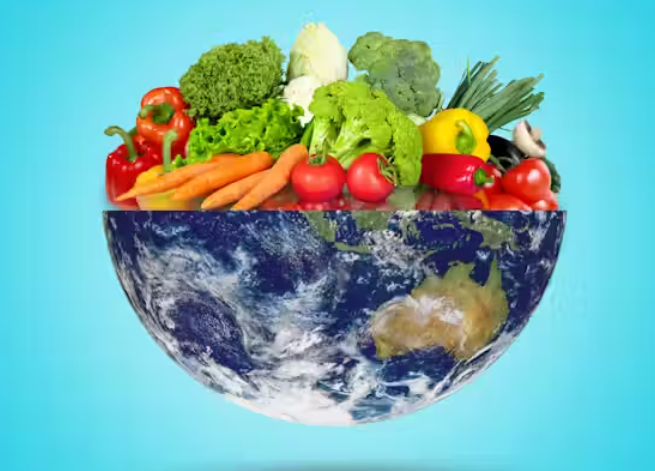Introduction:
In recent years, veganism has emerged as a popular lifestyle choice for individuals seeking to reduce their environmental footprint and promote animal welfare. With growing concerns about climate change, deforestation, and resource depletion, many are turning to plant-based diets as a solution to mitigate the environmental impact of food production. This article explores the potential of veganism as a key strategy for addressing global environmental challenges and saving our planet.
The Environmental Impact of Animal Agriculture:
One of the main causes of climate change and environmental deterioration is animal agriculture. The production of meat, dairy, and eggs requires vast amounts of land, water, and resources, leading to deforestation, habitat loss, and biodiversity decline. Livestock farming is also a major source of greenhouse gas emissions, accounting for a significant portion of global methane and nitrous oxide emissions. Additionally, animal waste runoff pollutes waterways and contributes to soil erosion and degradation.
The Role of Veganism in Environmental Conservation:
Adopting a vegan diet can significantly reduce the environmental footprint associated with food production. Plant-based foods require fewer resources to produce, emit fewer greenhouse gases, and have a lower impact on land and water usage compared to animal-derived foods. By eliminating animal products from their diet, vegans can help conserve natural resources, protect ecosystems, and reduce pollution. Studies have shown that transitioning to a vegan diet can reduce an individual’s carbon footprint by up to 50%.
Saving Water:
Water scarcity is a pressing environmental issue, exacerbated by the water-intensive nature of animal agriculture. Producing meat and dairy products requires vast amounts of water for irrigation, feed production, and animal hydration. By choosing plant-based foods, individuals can significantly reduce their water footprint. It takes far less water to produce fruits, vegetables, grains, and legumes compared to animal products. For example, producing a pound of beef requires approximately 1,800 gallons of water, while producing a pound of tofu requires only 302 gallons.
Preserving Biodiversity:
Animal agriculture is a leading driver of deforestation and habitat destruction, threatening biodiversity and wildlife populations worldwide. Forests are cleared to make way for grazing land, feed crops, and livestock farming, leading to the loss of critical habitat for countless plant and animal species. By transitioning to a vegan diet, individuals can help reduce the demand for agricultural land and mitigate the loss of biodiversity. Protecting natural ecosystems is essential for preserving biodiversity, ecosystem services, and the health of the planet.
Mitigating Climate Change:
Climate change is arguably the greatest environmental challenge facing humanity today, driven primarily by the burning of fossil fuels and land-use changes, including deforestation and agricultural expansion. Animal agriculture is a significant contributor to greenhouse gas emissions, particularly methane and nitrous oxide, which are more potent than carbon dioxide in trapping heat in the atmosphere. By reducing meat and dairy consumption, individuals can help mitigate climate change and limit global warming. Studies have shown that transitioning to a plant-based diet is one of the most effective ways to reduce greenhouse gas emissions on an individual level.
Promoting Sustainable Food Systems:
Veganism not only benefits the environment but also promotes sustainable and ethical food systems. By supporting plant-based agriculture, individuals can encourage the development of sustainable farming practices, such as organic farming, agroforestry, and regenerative agriculture. Plant-based diets offer a more efficient and equitable use of resources, allowing us to feed a growing global population while minimizing environmental impact. Moreover, veganism aligns with principles of animal welfare and compassion, advocating for the ethical treatment of animals and the reduction of animal suffering.
Conclusion:
In conclusion, veganism has the potential to play a crucial role in saving our planet and addressing pressing environmental challenges. By choosing plant-based foods over animal products, individuals can significantly reduce their environmental footprint, conserve natural resources, and promote sustainability. While veganism alone may not be the sole solution to global environmental problems, it represents a powerful and accessible tool for creating positive change. As we strive to build a more sustainable and resilient future, embracing veganism can be a key step towards safeguarding the health of our planet for generations to come.

